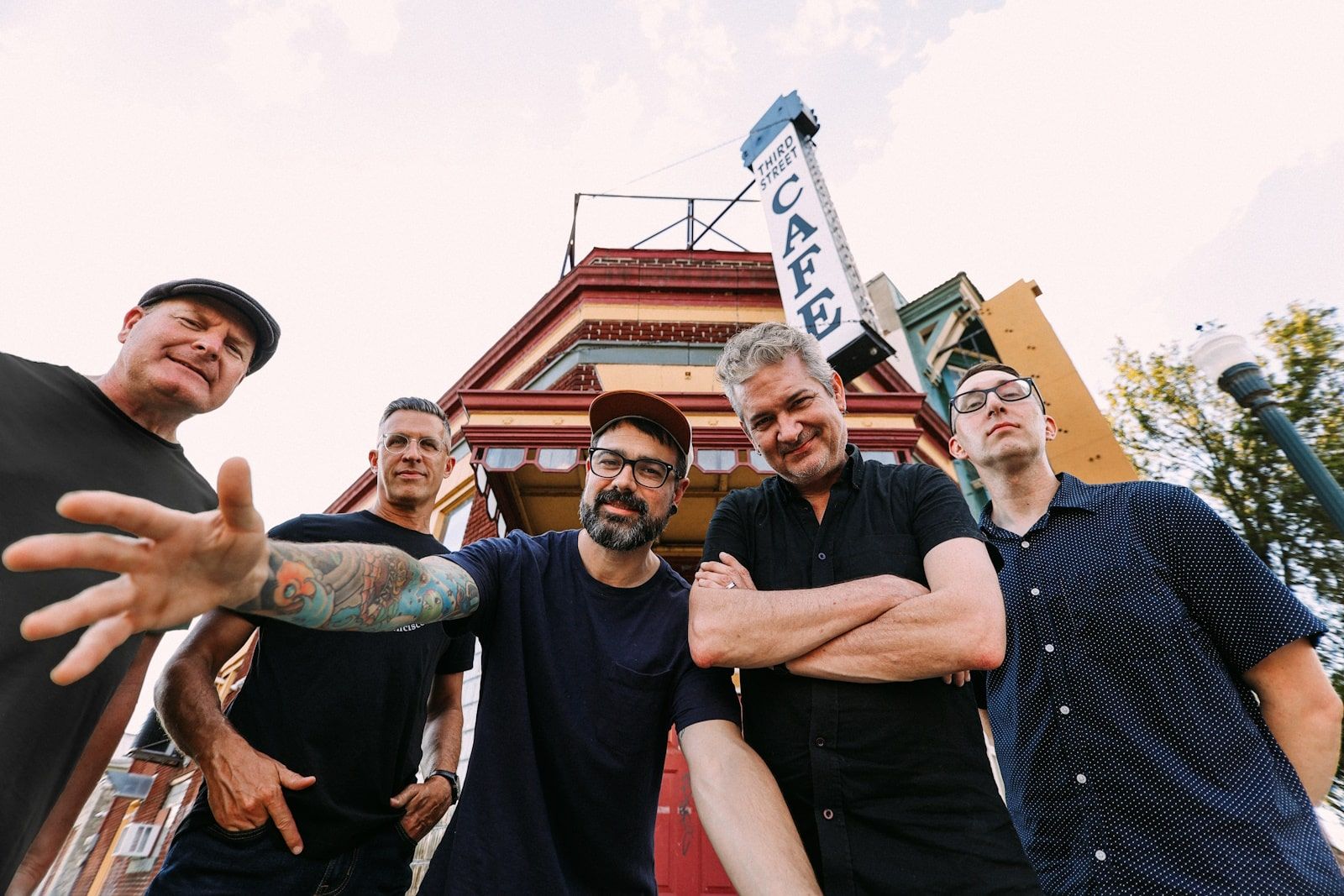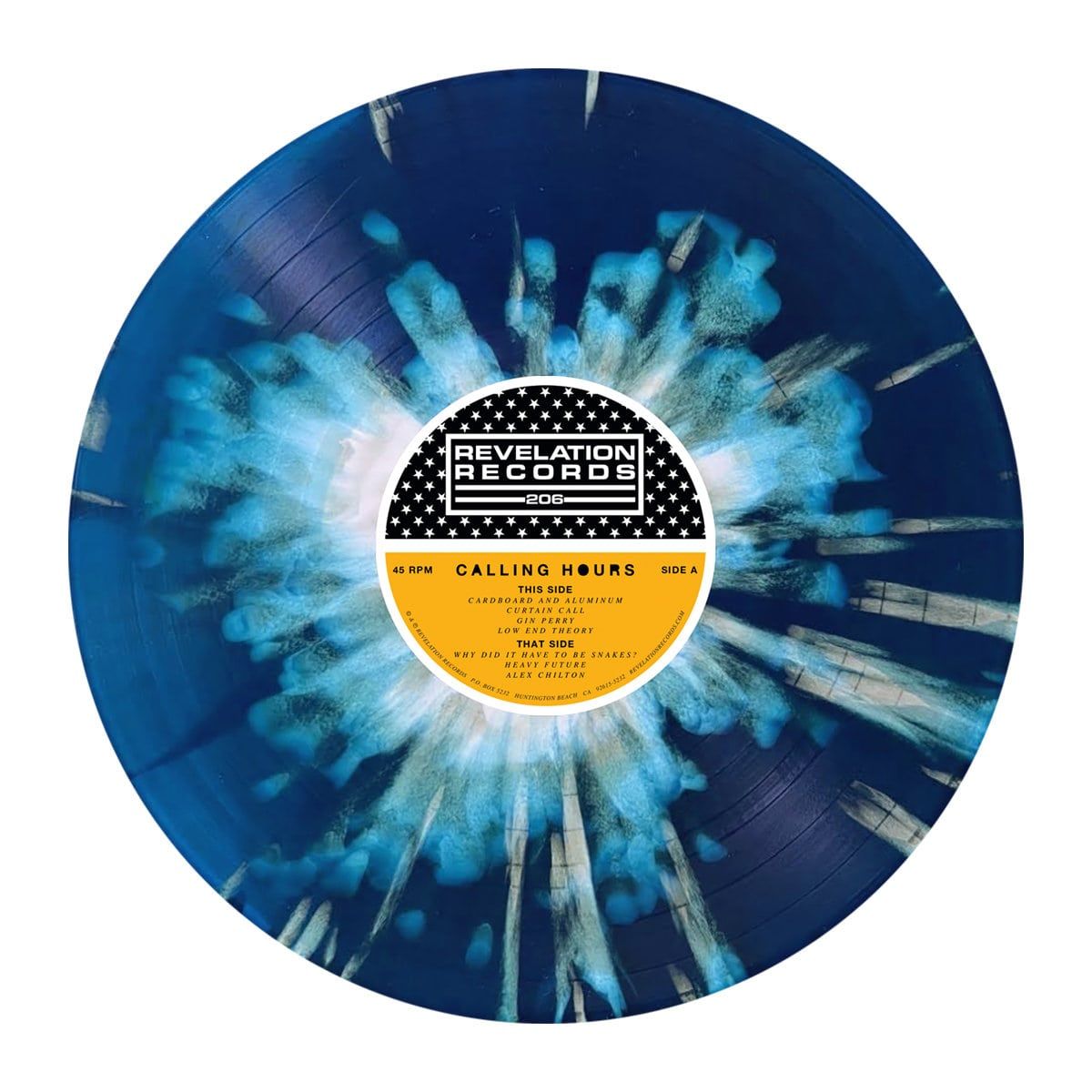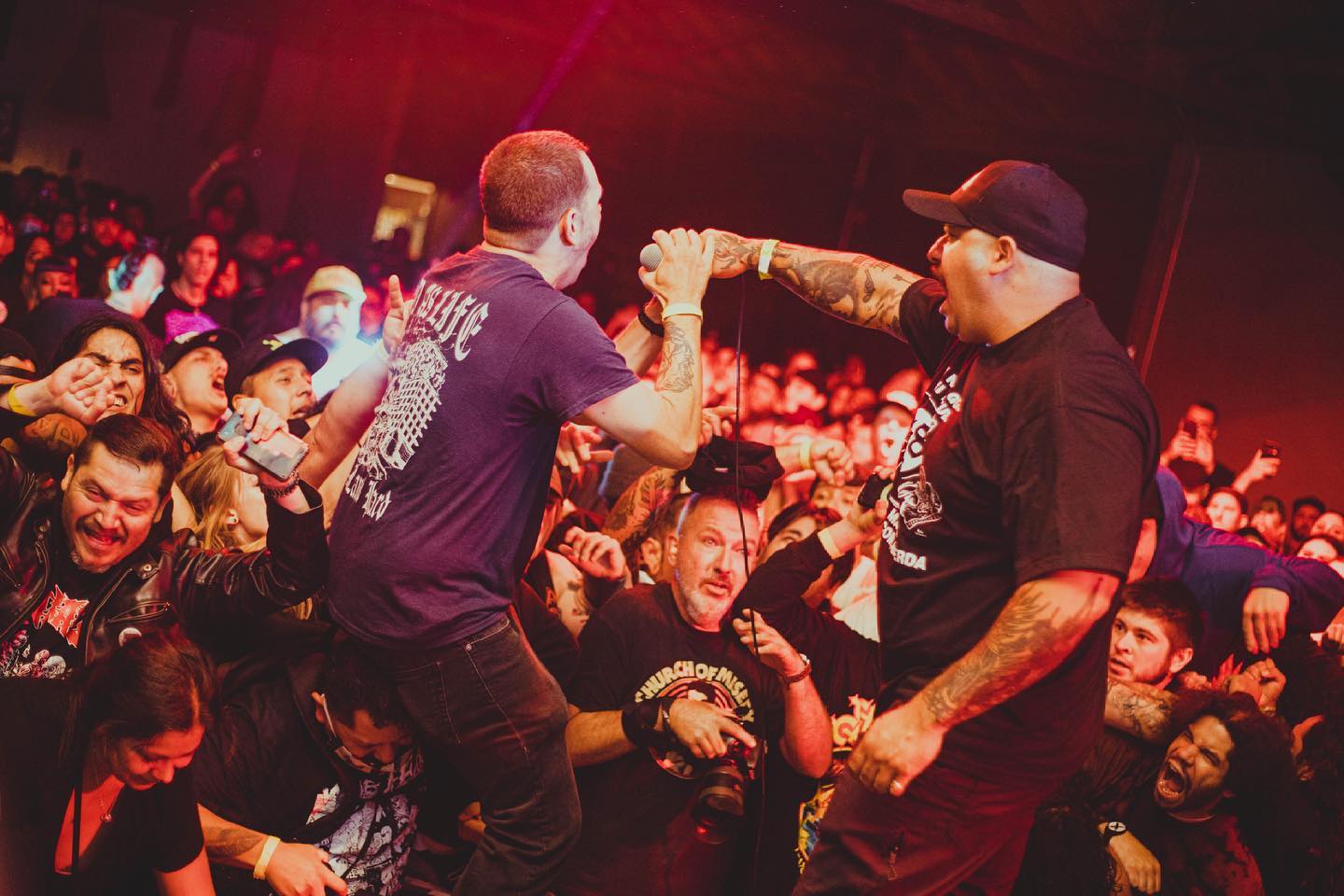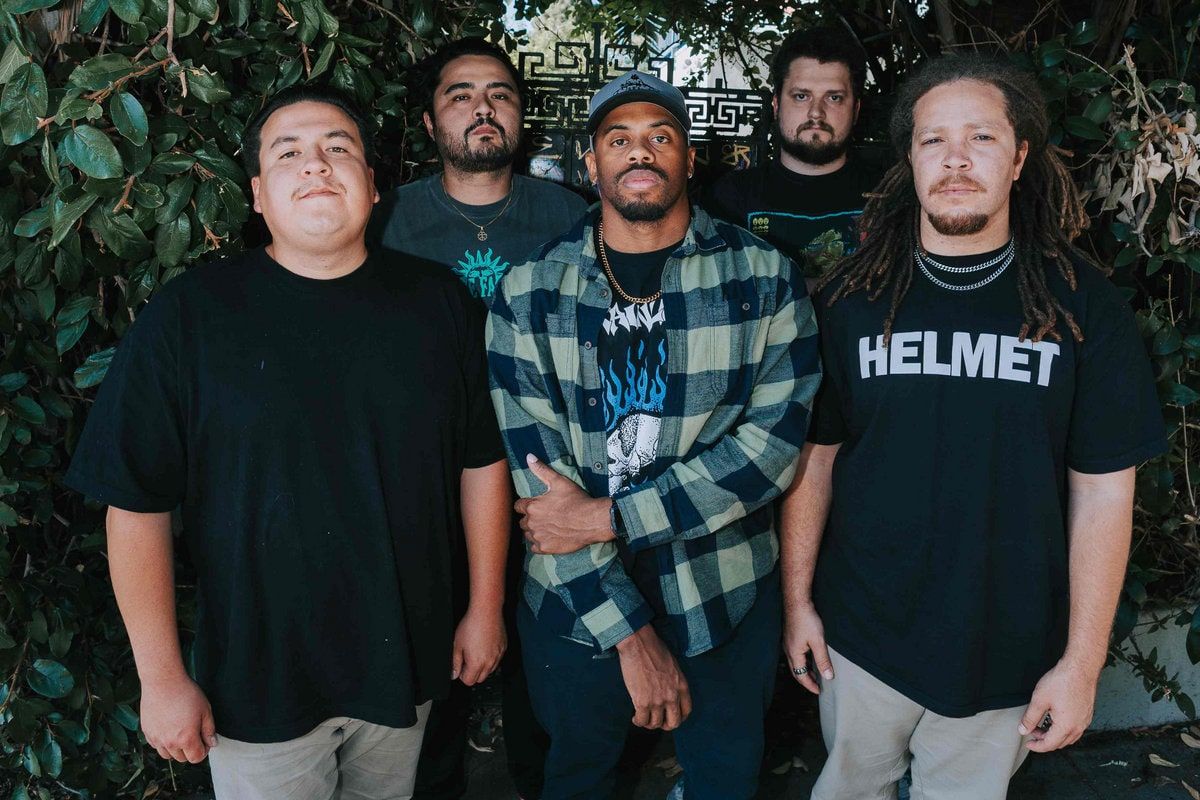This tale is not just about music; it’s about transformation, about the unexpected turns life takes and how they seep into the sounds and lyrics of a band. This band is Calling Hours, a gathering of musicians who are no strangers to the scene, yet together, they craft something distinctly novel and introspective.
Their journey is as much geographical as it is musical. Vocalist Popeye Vogelsang, once a familiar voice in the Southern California hardcore scene with Farside, finds a new beginning in the less trodden paths of Scranton, Pennsylvania. This shift from the sunny, bustling streets of Los Angeles to the quieter, unassuming corners of Scranton is not merely a change of scenery; it’s a catalyst for an artistic rebirth.
Calling Hours’ debut album, “Say Less,” released by Revelation Records and crafted under the guidance of seasoned producer Brian McTernan, is a collection of seven tracks that delve deep into themes of displacement, introspection, and the pursuit of new dreams.
The album is a reflection of Popeye’s own journey, a tale of leaving behind a solitary life in L.A. for a new chapter with newfound connections in Scranton. It’s a narrative woven with the threads of personal transformation, as Popeye navigates the complexities of life changes and their creative repercussions.
The band’s sound is a confluence of melodic post-punk sensibilities with a contemporary edge, a testament to their ability to evolve while staying true to their roots. Tracks like “Cardboard and Aluminum” and “Why Did It Have To Be Snakes?” are not just songs; they are windows into the soul of the artist, revealing the rawness of life’s precariousness and the unfolding of dreams yet to be realized.
As we prepare to delve deeper into the essence of Calling Hours through our interview below, expect to explore how geographical shifts influence their thematic and musical direction, the impact of Scranton’s music scene, and the personal experiences that shape their lyrical narrative. The conversation will also touch upon the creative processes behind “Say Less,” the influence of voiceover work on Popeye’s vocal style, and the delicate balance of merging melodic punk with contemporary elements without losing the essence of their punk roots.
Reflecting on your journey from Los Angeles to Scranton, how has this geographical shift influenced the thematic elements and sound of Calling Hours, especially in “Say Less”?
Popeye: I grew up in the suburbs of Orange County, California, and then lived in an urban neighborhood of Los Angeles for 20 years before moving to the Pennsylvania suburbs to be with my wife. So, there were definitely some large adjustments involved with moving 3,000 miles across the county and moving back to the suburbs.
Lyrically, the songs are mostly about adapting to married life, adapting to being a suburbanite, adapting to being a cat dad, as well as adapting to being a homeowner and not being able to simply call a landlord if something needs to be fixed.
Considering the current music scene in Scranton, what unique opportunities or challenges have you encountered there compared to your time in Southern California?
Popeye: Honestly, I’m completely clueless when it comes to any scene in Scranton. I’ve made a bunch of friends from the hardcore scene since I’ve been here, but I’m in my 50s, so I don’t really know what’s going on in general.
That being said, all of the other guys in Calling Hours live in Harrisburg, Pennsylvania, which is a couple of hours away from Scranton, and I know that they’ve always seemed to enjoy a very active and vibrant scene.
As far as challenges, the distance between my bandmates and me doesn’t make things very convenient, but it’s totally worth the drive to get to play with those guys.
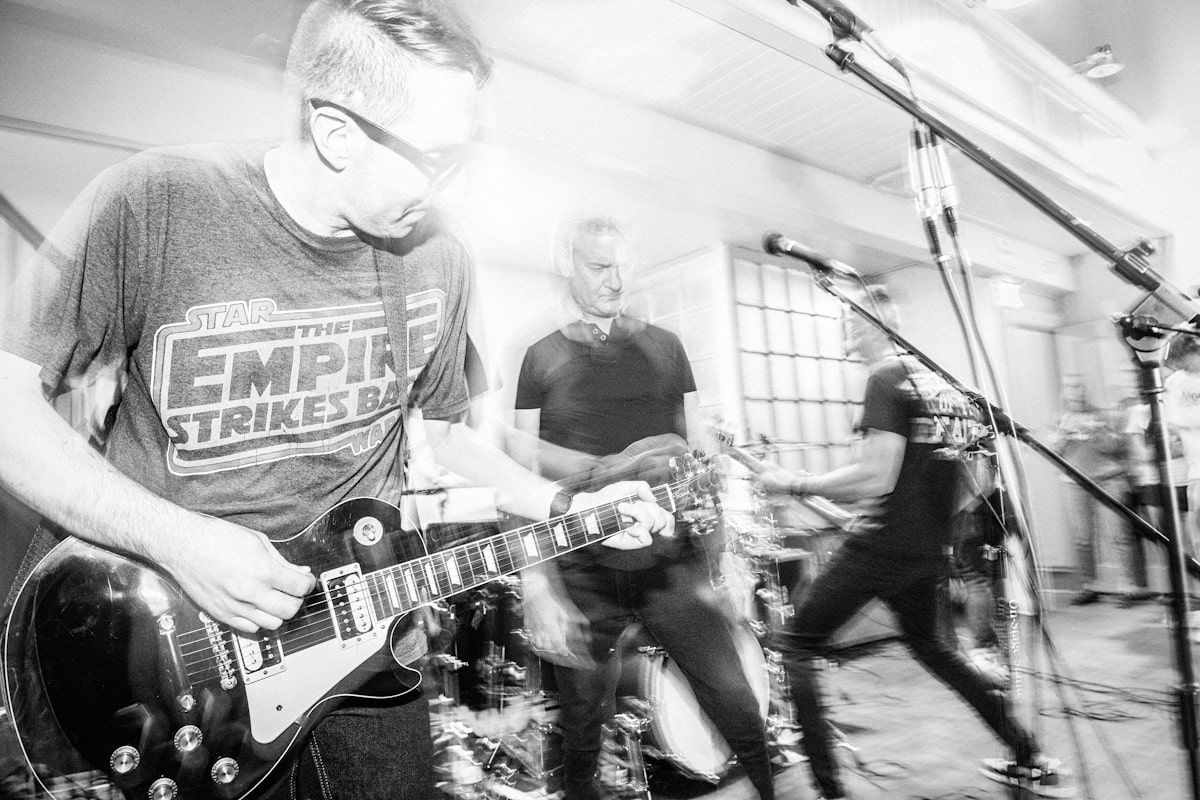
“Say Less” encapsulates themes of displacement and introspection. Can you share how personal experiences shaped the lyrical narrative of the album?
Popeye: I guess it’s just how I’ve always written lyrics. I think if you’re into punk or hardcore you’re always going to feel a little displaced no matter what.
I was always inspired by bands that had a message and had anthemic songs that addressed important topics involving the world that we live in. Early on with Farside, I tried writing songs like that, but I never thought they were very good and I started to feel silly about it. So, I started writing songs that were more about interpersonal struggles.
I suppose it’s all a culmination of trying to navigate through your life. There are great memories and horrible memories that you’ve stored in your brain for decades, and occasionally, if you’re lucky, you get to express them through music.
Your move to Pennsylvania marked a significant life change. How has this transition been mirrored in your creative process or songwriting approach with Calling Hours?
Popeye: Well, it’s a lot quieter where I live now and I have a lot more space compared to when I was in Los Angeles. I’m also a remote worker, which means that I have plenty of time to procrastinate. These days, if I have to write lyrics, I have a horrible habit of waiting until the last minute to scribble out some garbage and hope that the rest of the guys like it.
Collaborating with Brian McTernan appears to be a pivotal aspect of “Say Less.” Could you elaborate on how his influence shaped the album’s direction?
Popeye: Brian may as well be the sixth member of Calling Hours. He and I have been friends for a very long time but never had an opportunity to work together, and the other guys in Calling Hours had previously worked with him with Don’t Sleep. It seemed like a no-brainer for us to work on this record together.
We went into this record with the understanding that we couldn’t be too attached to anything, which was a process that none of us had ever experienced before. We would show up to the studio, do live recordings of the songs, and then they would turn into songwriting sessions. Brian would give us his feedback, we would make changes and do some tweaking, and then re-record everything until all of us were satisfied. We all had a tremendous amount of trust in Brian to produce these songs, and we’re all incredibly happy and proud with the way everything came out.
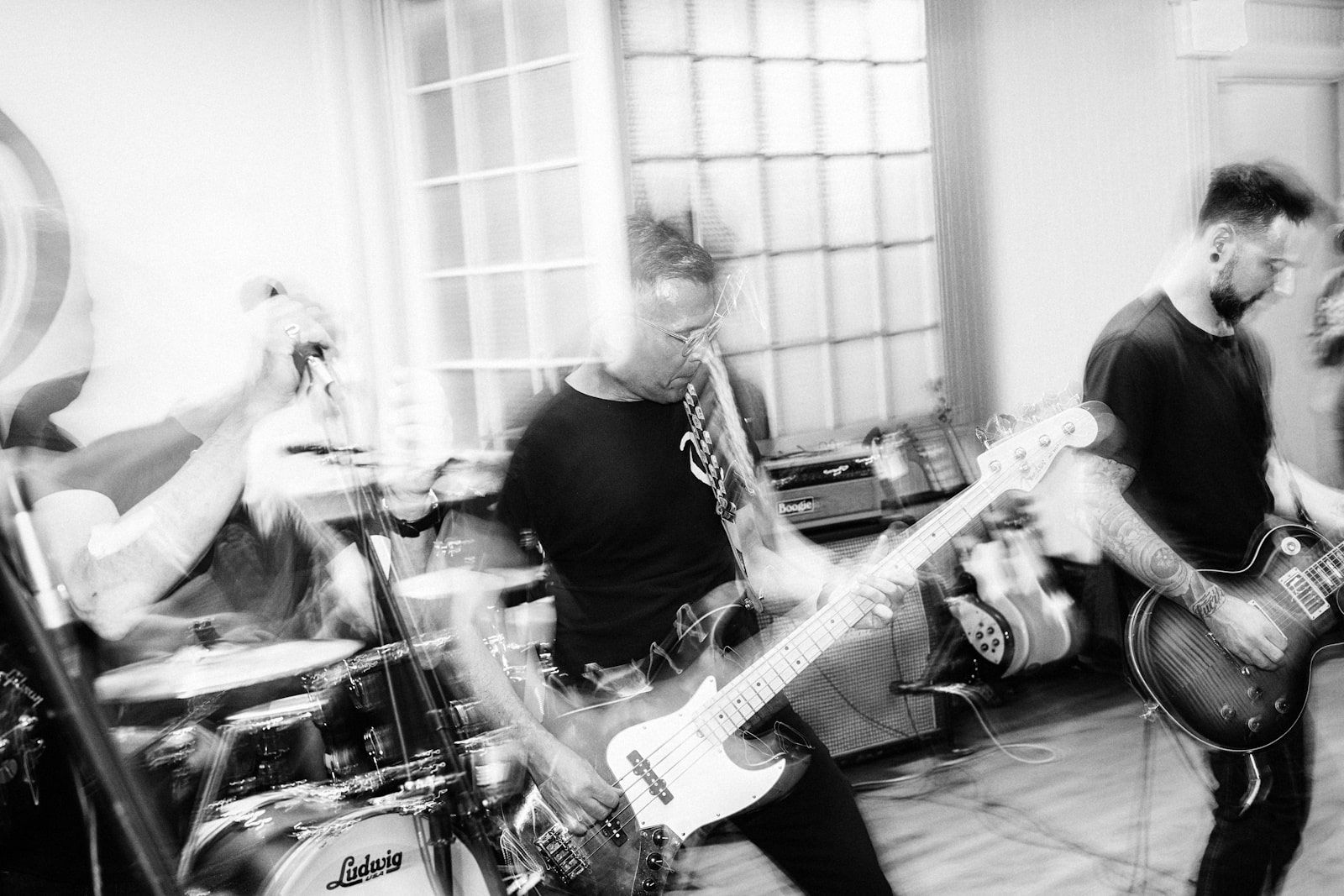
How has your experience in voiceover work influenced your vocal techniques or performance style in Calling Hours?
Popeye: It’s really the other way around. Singing for Farside for all those years definitely helped me transition into voice overs. Knowing how a recording studio works, being comfortable in front of a microphone, working with a recording engineer, and not being afraid to make a fool out of yourself in front of other people have become very useful tools.
Given your extensive career with Farside, how do you perceive the evolution of your musical identity in Calling Hours?
Popeye: I think as you age you expand your horizons musically whether you’re aware of it or not. Musical influences will creep in, life experiences will creep in, and playing music with a different gang of people will certainly force you adapt so that you can feel like you’re making a solid contribution. My goal has always been to not be the guy that ruins the project.
In “Say Less,” there’s a noticeable blend of melodic punk with contemporary sensibilities. How did you strike a balance between these elements without losing the essence of your punk roots?
Popeye: We’re all hardcore guys but we have a lot of other musical tastes as well. I think it comes down to a blend of musical influences that we all have, and all of us being open to workshop ideas in the hopes that we end up with something that we’re all happy with. Ultimately, I think that’s always been the goal, to do something that we like as opposed to trying to be something vapid in the hopes of pleasing an audience.
The track “Cardboard and Aluminum” speaks to life’s precariousness. What was the inspiration behind this song, and how does it resonate with your current life perspective?
Popeye: The song is about having very little means, but trying to work with what you have. There were times when I had to repair something at my home but, rather than spending the money on a repairman, I would try to fix it myself on a limited budget. It goes back to being a renter for most of my adult life to becoming a homeowner and having to deal with things that nobody wants to deal with. Sometimes you succeed with the repairs and projects, and sometimes you don’t.
“Why Did It Have to Be Snakes?” conveys a sense of unfolding dreams. How does this track reflect your hopes or aspirations with Calling Hours?
Popeye: I’m incredibly grateful and humbled that I get to do this band with these guys. Mostly, I’m grateful that I made four new friends who have accepted me into their fold. As for aspirations, these guys are all incredibly encouraging and we collectively make each other hungry do make more music and play more shows.
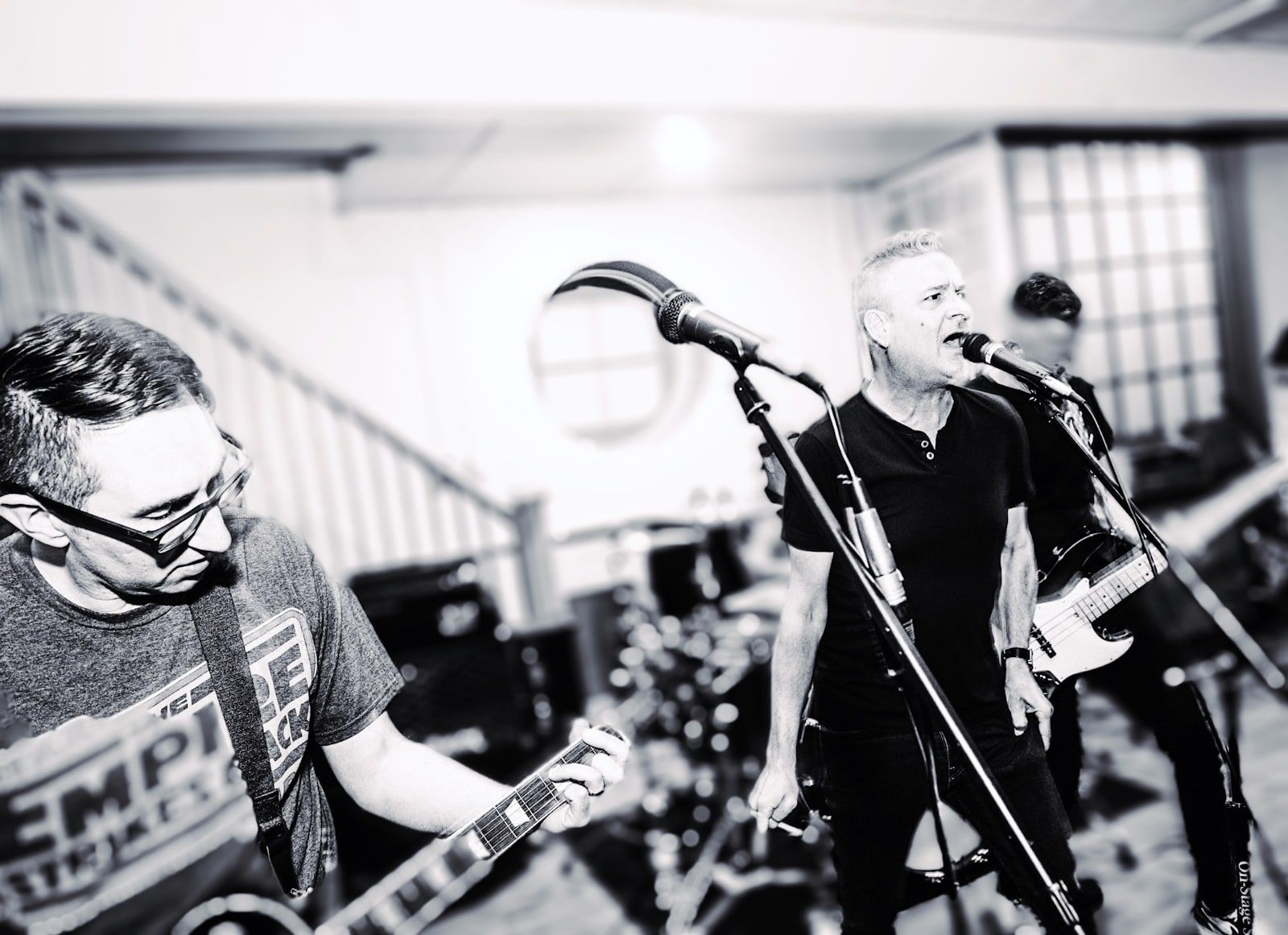
With the diverse musical backgrounds of Calling Hours’ members, how do you navigate the creative dynamics within the band?
Popeye: The other guys like to get together once in a while to work on songs, but I’m hours away, so I don’t really know what they’re doing. They will send me practice recordings and then I’ll start working on vocal ideas. Otherwise, I have no clue what the creative dynamics are with Calling Hours. Those guys have known each other forever and somehow it seems to work for all of us.
Can you recommend any emerging artists or bands from 2023 that have caught your attention, particularly in the Scranton area or the broader East Coast scene?
Popeye: I don’t know of any bands in Scranton, but in the broader east coast area, we’ve played a couple of shows with Shades Apart recently and they’re incredible as always. Mercy Union and Died Out are also great bands and great people as well.
Looking ahead, what can fans expect from Calling Hours in terms of live performances, touring plans, or future projects?
Popeye: We have some more songs in our back pockets and we’re hoping to get together with Brian McTernan in early 2024 to start demoing and eventually recording our next record with Revelation. We can’t wait!



